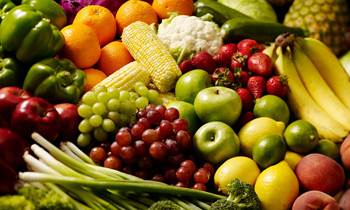Washington D.C., May 20: While a dairy-rich diet is helpful in meeting the body's calcium requirement, outcomes of a large international study links eating at least two daily servings of dairy with lower risks of diabetes and high blood pressure.
The dairy-rich diet also proved to lower the cluster of factors that heighten cardiovascular disease risk (metabolic syndrome). The study was published online in journal BMJ Open Diabetes Research & Care.
The observed associations were strongest for full-fat dairy products, the findings indicated.
Previously published research has suggested that higher dairy intake is associated with a lower risk of diabetes, high blood pressure, and metabolic syndrome. But these studies have tended to focus on North America and Europe to the exclusion of other regions of the world.
To see whether these associations might also be found in a broader range of countries, the researchers drew on people taking part in the Prospective Urban Rural Epidemiology (PURE) study.
Participants were all aged between 35 and 70 and came from 21 countries: Argentina; Bangladesh; Brazil; Canada; Chile; China; Colombia; India; Iran; Malaysia; Palestine; Pakistan; Philippines, Poland; South Africa; Saudi Arabia; Sweden; Tanzania; Turkey; United Arab Emirates; and Zimbabwe.
Usual dietary intake over the previous 12 months was assessed by means of Food Frequency Questionnaires. Dairy products included milk, yogurt, yogurt drinks, cheese and dishes prepared with dairy products, and were classified as full or low fat (1-2 percent).
Butter and cream were assessed separately as these are not commonly eaten in some of the countries studied.
Information on personal medical history, use of prescription medicines, educational attainment, smoking and measurements of weight, height, waist circumference, blood pressure and fasting blood glucose were also collected.
Data on all five components of the metabolic syndrome were available for nearly 113,000 people: blood pressure above 130/85 mm Hg; waist circumference above 80 cm; low levels of (beneficial) high-density cholesterol (less than 1-1.3 mmol/l); blood fats (triglycerides) of more than 1.7 mmol/dl; and fasting blood glucose of 5.5 mmol/l or more.
Average daily total dairy consumption was 179 g, with full-fat accounting for around double the amount of low fat: 124.5+ vs 65 g.
Some 46, 667 people had metabolic syndrome--defined as having at least 3 of the 5 components.
Total dairy and full-fat dairy, but not low-fat dairy, was associated with a lower prevalence of most components of metabolic syndrome, with the size of the association greatest in those countries with normally low dairy intakes.
At least 2 servings a day of total dairy were associated with a 24 percent lower risk of metabolic syndrome, rising to 28 percent for full-fat dairy alone, compared with no daily dairy intake.
The health of nearly 190,000 participants was tracked for an average of nine years, during which time 13,640 people developed high blood pressure and 5351 developed diabetes.
At least 2 servings a day of total dairy was associated with a 11-12 percent lower risk of both conditions, rising to a 13-14 percent lower risk for 3 daily servings. The associations were stronger for full fat than they were for low-fat dairy.
This is an observational study, and as such can't establish the cause. Food frequency questionnaires are also subject to recall, and changes in metabolic syndrome weren't measured over time, all of which may have influenced the findings.
Nevertheless, the researchers suggest: "If our findings are confirmed in sufficiently large and long term trials, then increasing dairy consumption may represent a feasible and low-cost approach to reducing [metabolic syndrome], hypertension, diabetes, and ultimately cardiovascular disease events worldwide."
 They have found that naturally-grown food can potentially tackle depression in as little as two weeks. Researchers from the University of Otago studied 171 adults aged between 18 and 25 about their dietary habits.
They have found that naturally-grown food can potentially tackle depression in as little as two weeks. Researchers from the University of Otago studied 171 adults aged between 18 and 25 about their dietary habits.




Comments
Add new comment